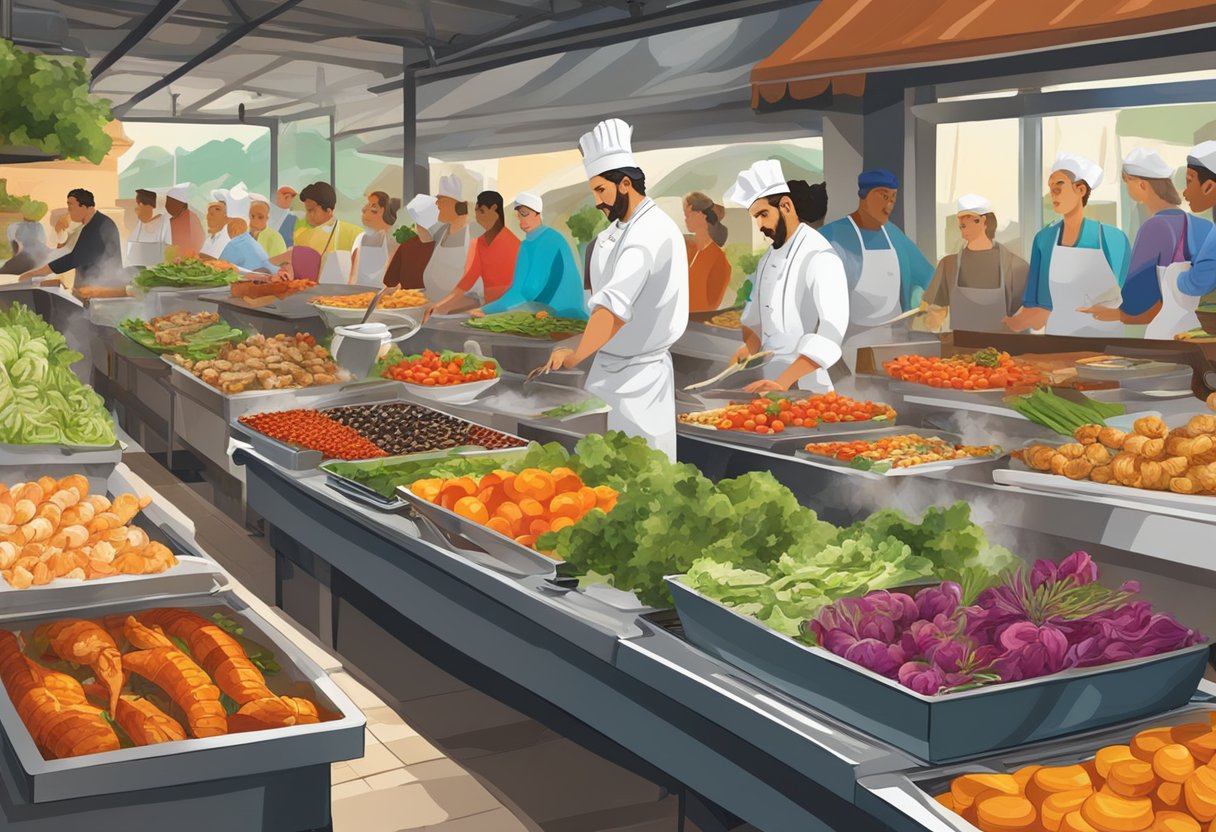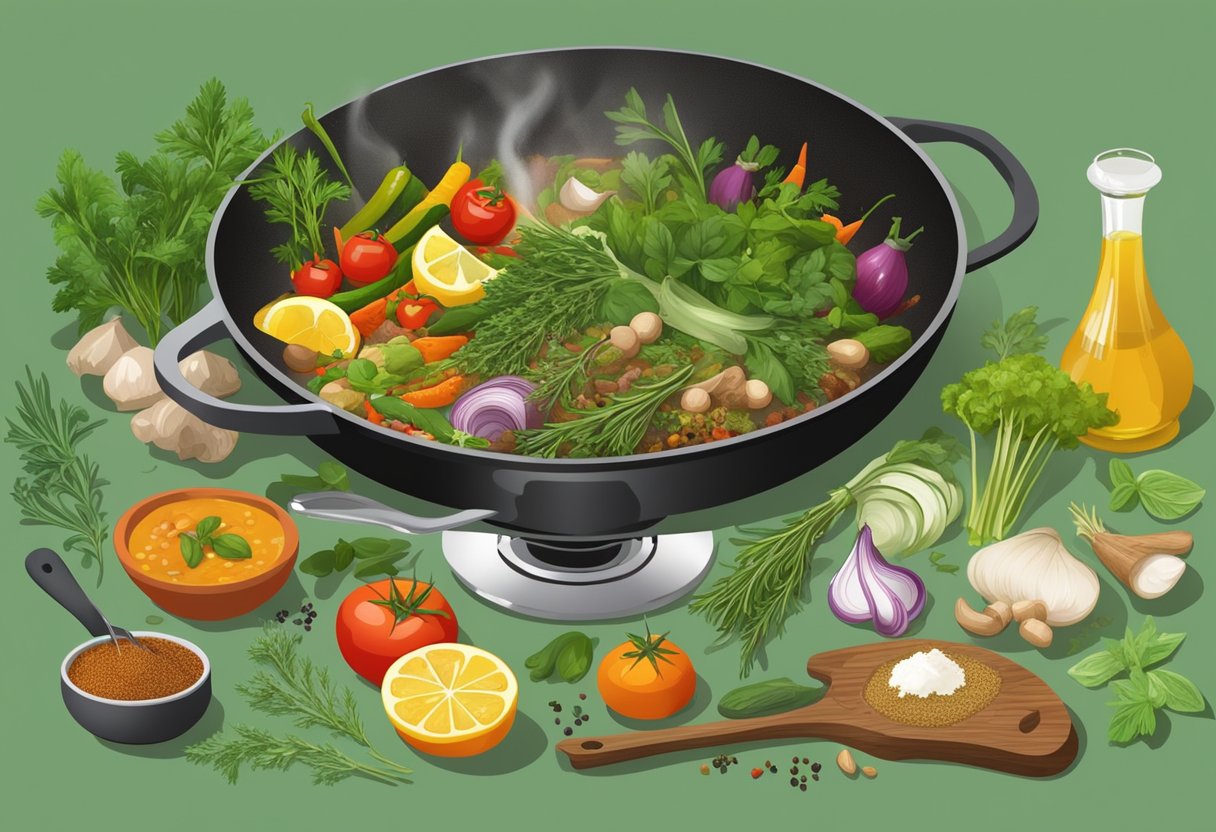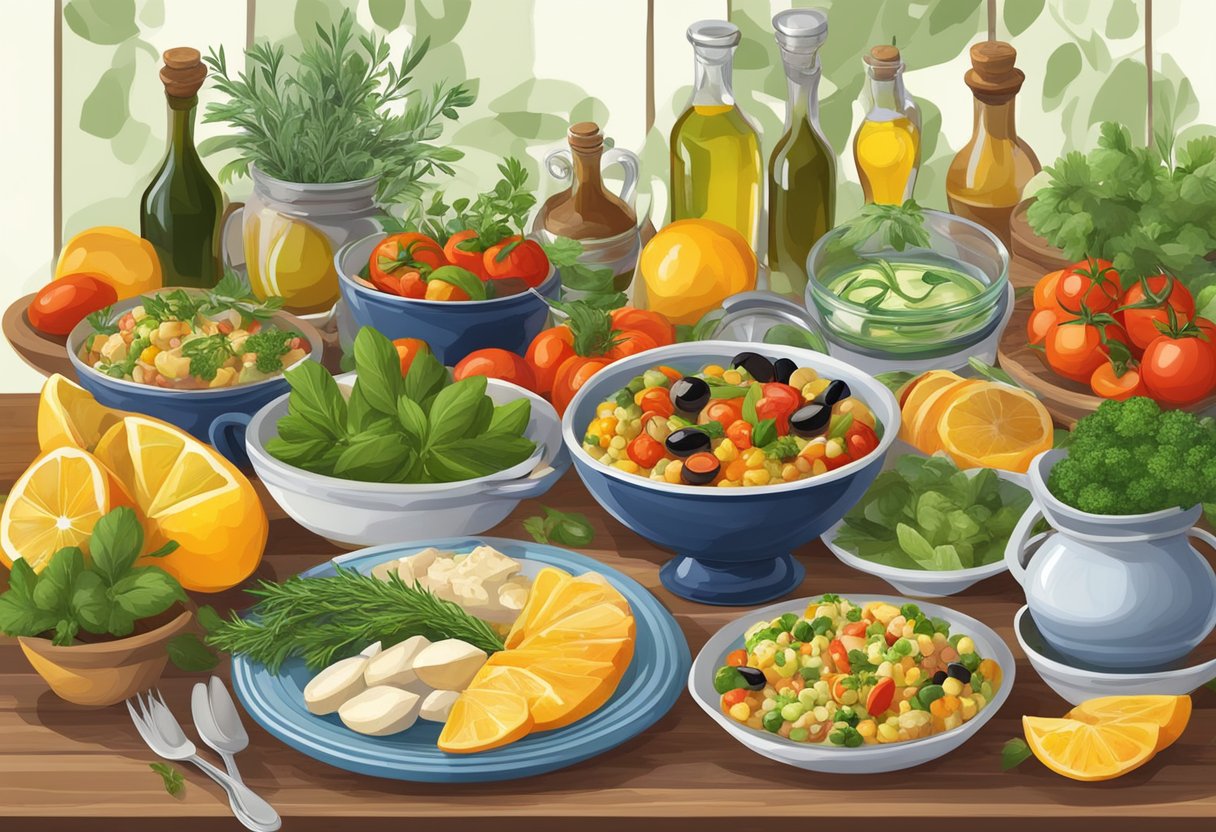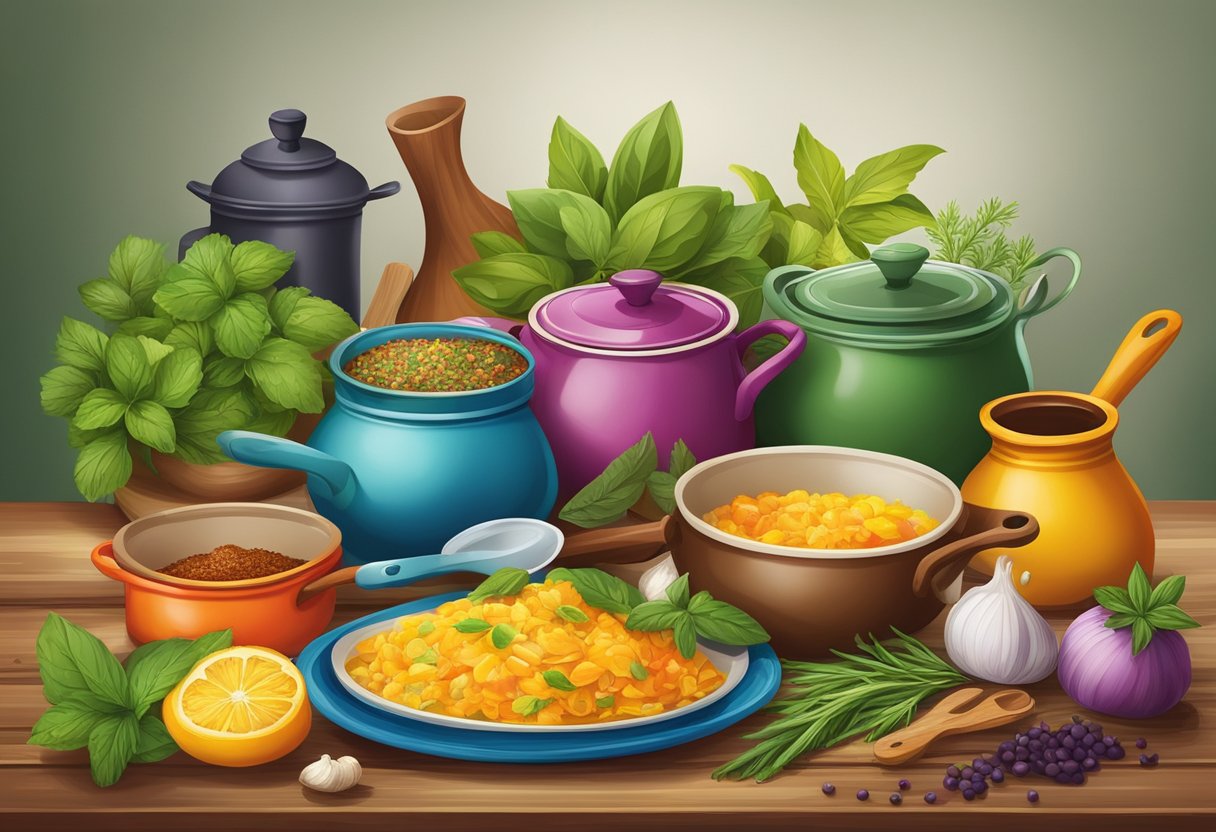Mediterranean cooking is renowned for its vibrant flavors, diverse ingredients, and numerous health benefits. This approach to food preparation is deeply rooted in the cultures surrounding the Mediterranean Sea and focuses on plant-based foods, healthy fats, whole grains, and lean proteins. Integrating these elements into one’s diet can contribute to overall well-being, as the Mediterranean diet is often associated with longevity and a reduced risk of chronic diseases.

The appeal of Mediterranean cuisine lies not only in its nutritional profile but also in its versatility and sustainability. It encourages the use of seasonal and local produce, fostering a connection with the environment and sustainability in food choices. The techniques and skills required for Mediterranean cooking are passed down through generations, reflecting the region’s rich culinary heritage and the significance of food in fostering community and family ties.
Key Takeaways
- Mediterranean cooking emphasizes plant-based ingredients and healthy fats.
- Seasonal and sustainable food choices are central to this culinary approach.
- Food preparation in this tradition strengthens cultural and familial connections.
Table of Contents
Mediterranean Diet Fundamentals

The Mediterranean diet emphasizes fresh, whole foods and healthy fats, making it a favorable choice for people seeking a nutritious lifestyle. Its fundamentals rest on a variety of key components and their respective contributions to health and cultural practices, particularly suitable for those following a gluten-free regimen.
Essential Ingredients
- Olive Oil: A staple in Mediterranean cooking, it’s used liberally for its heart-healthy fats and flavor.
- Vegetables and Fruits: These provide essential vitamins, minerals, and fiber. Common choices include leafy greens, tomatoes, and citrus fruits.
- Legumes and Nuts: Chickpeas, lentils, almonds, and walnuts are included for their protein and healthy fats.
- Seafood: Favored over red meat, it’s a primary protein source, rich in omega-3 fatty acids.
- Whole Grains: Gluten-free options like quinoa and brown rice are integrated into meals for their nutrient density.
Health Benefits
The Mediterranean diet is associated with numerous health advantages. The incorporation of olive oil and nuts contributes to cardiovascular well-being. Legumes serve as a high-protein, gluten-free alternative that benefits digestive health. Seafood regularity supports cognitive function due to omega-3 fatty acids.
Cultural Significance
Mediterranean cuisine is a reflection of the diverse cultures that border the Mediterranean Sea. Each meal, whether it’s a simple breakfast or an elaborate dinner course, is steeped in traditions that emphasize communal dining and seasonal ingredients.
Dietary Patterns
A typical Mediterranean dietary pattern is rich in plants and healthy fats while being low in processed foods and red meat, aligning with gluten-free needs. Breakfast might include Greek yogurt with fruits and nuts, while dinner could revolve around grilled vegetables and quinoa or brown rice. Cooking methods often involve grilling or sautéing in olive oil, enhancing flavors and nutritional content.
Cooking Techniques and Skills

Mediterranean cuisine embraces a range of cooking methods and skills that enhance the natural flavors of high-quality ingredients. Mastering these techniques can greatly elevate even the simplest dishes.
Basic Cooking Methods
Mediterranean cooking often begins with olive oil as a base for both sautéing and dressing dishes. Grilling is another fundamental technique, ideal for vegetables and meats, imparting a smokey flavor without the need for gluten. Baking at low temperatures is also common, particularly for dishes like gluten-free flatbreads and lean fish like salmon.
- Sautéing: Start with a hot pan and a small amount of olive oil to achieve a golden color and tender texture.
- Grilling: Use a grill or grill pan to cook sliced vegetables or marinated meats over moderate heat.
- Baking: Preheat the oven and use a timer to prevent overcooking, ensuring moist and flavorful results.
Advanced Culinary Skills
Once basic methods are mastered, incorporating advanced culinary skills can help in the preparation of more complex dishes. Artful plating of mezze or tapas allows for a visually appealing spread of gluten-free options, while balancing flavors in a greek salad requires a keen palate.
- Marinating: A combination of olive oil, lemon juice, and herbs can tenderize proteins and infuse them with flavor.
- Reduction: Slowly simmering sauces enhances their intensity and consistency, perfect for drizzling over gluten-free pasta.
- Knife skills: Precise chopping, dicing, and slicing ensure consistent cooking and presentation.
Signature Dishes and Preparation
There are signature dishes within the Mediterranean diet that showcase these cooking skills. A traditional Greek salad emphasizes the freshness of its ingredients, requiring minimal yet skillful preparation. Properly executed, a gluten-free pasta highlights the robust flavors of the Mediterranean without the need for wheat.
- Greek Salad: Combine fresh cucumber, tomatoes, olives, feta cheese, and dress with a simple vinaigrette.
- Salmon: Grill or bake with a crust of herbs and serve with lemon for a quintessential Mediterranean dish.
- Mezze: Arrange a variety of small, gluten-free dishes, including marinated olives, sliced vegetables, and spreads, to create a flavorful and communal dining experience.
Regional Culinary Exploration
The Mediterranean’s diverse geography is reflected in its eclectic cuisine, offering a spectrum of flavors ranging from the olive oil-drenched dishes of the southern regions to the hearty pasta and pizza found in the north. Each area presents a unique culinary tradition that caters to a variety of palates, including those following a gluten-free diet.
Northern Mediterranean Cuisine
Northern Italy showcases a rich selection of hearty dishes where pasta and pizza reign supreme. Gluten-free alternatives to classic dishes are increasingly popular, utilizing ingredients like polenta, risotto, and gluten-free pasta variations. Olive oil, a staple in Mediterranean cooking, is used generously to enhance flavors.
- Italian Gluten-Free Staples:
- Polenta (boiled cornmeal)
- Risotto (arborio rice)
- Gluten-Free Pasta (rice, corn, or legume-based)
Eastern Mediterranean Flavors
Countries within the Eastern Mediterranean, such as Greece and Lebanon, offer a colorful array of dishes that consist of fresh vegetables, grains, and legumes. Tabbouleh salad, usually made with bulgur, can be enjoyed in a gluten-free version by substituting quinoa. Falafel, commonly served with a side of gluten-free mezze, continues to delight diners across the world.
- Greek and Lebanese Delights:
- Tabbouleh Salad (quinoa-based)
- Falafel (chickpeas, herbs, spices)
- Mezze (a selection of small dishes)
Western Mediterranean Delicacies
The Western Mediterranean, particularly Spain, is famous for tapas and paella, two dishes that can easily incorporate gluten-free ingredients. Traditional paella utilizes rice and a bounty of seafood, meat, and vegetables, making it a satisfying meal for those avoiding gluten. Tapas, on the other hand, offer a variety of small dishes, many of which are naturally gluten-free.
- Spanish Sensations:
- Paella (saffron rice, seafood or meat)
- Tapas (a variety of small dishes)
- Olive Oil (used to cook and flavor dishes)
Iconic Mediterranean Recipes

Mediterranean cuisine boasts a rich tapestry of flavors, often emphasizing fresh ingredients and wholesome meals. This selection of iconic recipes showcases traditional, gluten-free options that highlight the diversity of the region’s food through seasonal dishes, classic restaurant offerings, and family favorites.
Month-by-Month Seasonal Dishes
Each month the Mediterranean yields a bounty of seasonal produce that inspires a series of delectable dishes. In spring, one can enjoy a classic Greek Salad, bursting with ripe tomatoes, cucumbers, and olives, all drizzled with extra-virgin olive oil. As summer approaches, a chilled Seafood Salad, featuring fresh squid, octopus, and prawns becomes a popular choice.
| Month | Seasonal Dish | Key Ingredients |
|---|---|---|
| Spring | Greek Salad | Tomatoes, cucumbers, olives, olive oil |
| Summer | Seafood Salad | Squid, octopus, prawns |
| Fall | Roasted Vegetable Medley | Eggplants, bell peppers, zucchini |
| Winter | Citrus-Cured Salmon | Salmon, citrus, herbs |
Restaurant Classics
Restaurants across the Mediterranean are renowned for their timeless classics that are both delicious and naturally gluten-free. Iconic dishes like the Neapolitan Pizza, with its thin, crisp base made from gluten-free flour, to the savory Mezze platters that include an assortment of hors d’oeuvres such as marinated olives, stuffed grape leaves, and hummus, are all staples in these establishments.
- Neapolitan Pizza: Gluten-free flour, tomatoes, fresh mozzarella
- Mezze Platter: Olives, grape leaves, hummus
The Family Table
The family table in Mediterranean homes often features dishes that are rich in vegetables and light on red meat. Pasta al Pomodoro, a simple yet flavorful dish made with gluten-free pasta, ripe tomatoes, garlic, and a generous splash of olive oil, exemplifies the heart of Mediterranean cooking for a family dinner. For breakfast, a scrumptious platter with cheese, olives, and fresh fruit provides a protein-rich start to the day.
- Dinner: Pasta al Pomodoro with gluten-free pasta
- Breakfast: Cheese, olives, fresh fruit platter
By embracing the Mediterranean’s penchant for fresh, quality ingredients, even those following a gluten-free diet can savor the joy of cooking and eating these iconic dishes.
The Art of the Mediterranean Meal

The Mediterranean meal is an exquisite tapestry woven from the vibrant colors and flavors of the region’s freshest ingredients. In a journey through the typical Mediterranean menu, diners embark on a culinary exploration of small plates, herb-infused pastas, seafood feasts, and divine confections crafted to satisfy without overwhelming.
Appetizers and Mezze
Mediterranean cuisine often begins with a selection of appetizers and mezze, small plates that ignite the appetite. Gluten-free options abound within this tradition. Dishes like pinchos morunos (skewered meats) marinated with bold spices and grilled to perfection, or caponata, a delightful eggplant dish, are both flavorful and compliant with gluten-free diets. Bitter greens tossed in high-quality olive oil and fresh lemon juice can make a simple yet zesty salad.
Main Courses and Pairings
The main courses in Mediterranean cooking emphasize a balanced mix of seafood, meats, and pastas. Gluten-free pasta alternatives made from rice or legume flours serve as an excellent base for sauces rich with tomatoes and herbs. Meats are typically grilled or roasted with a medley of herbs, and seafood is often cooked to highlight its natural flavors, pairing wonderfully with wines of the region.
- Fish: Grilled with lemon and herbs
- Lamb: Roast with rosemary and garlic
- Pasta: Tossed with vegetables and olive oil
Desserts and Sweets
Mediterranean sweets provide an enchanting finish to any meal. Gluten-free stars include chocolate desserts made from pure cacao and coffee granita dessert, a refreshing icy delicacy. Many Mediterranean desserts feature nuts, honey, and fruits, offering a variety of textures and tastes that are naturally free of gluten, and thus suitable for those with dietary restrictions.
- Chocolate Treats: Flourless cakes and dark chocolate delights
- Icy Refreshments: Granitas flavored with coffee or citrus fruits
- Honeyed Fruits: Poached pears or figs drizzled with honey
Through meticulous preparation and a reverence for natural flavors, Mediterranean cooking exudes a joyful simplicity that becomes evident in every dish. The experience of such meals celebrates not just the taste buds, but the overall well-being of each diner.
Educational Resources and Guidance

For individuals looking to master the art of Mediterranean cooking, especially aligning with a gluten-free diet, there are specialized educational resources and guidance available. These resources range from professional culinary courses to home cooking strategies and online learning platforms, all designed to foster cooking skills and deepen culinary knowledge.
Culinary Institutes and Courses
The Culinary Institute of America has paved the way in culinary excellence and education. Chef Bill Briwa, a notable chef-instructor, has tailored an array of courses that not only focus on the fundamentals of cooking but also emphasize gluten-free recipes and techniques inherent in Mediterranean cuisine. Their offerings are especially beneficial for those aspiring to become professional chefs. The institute provides a robust curriculum that underscores the importance of using fresh, gluten-free ingredients to create dishes that are both healthy and flavorful.
Home Cooking Strategies
Cooking at home allows for unparalleled control over ingredients, especially important for individuals following a gluten-free diet. The Joy of Mediterranean Cooking gives insights into how home cooks can enhance their cooking skills utilizing gluten-free ingredients commonly found in Mediterranean recipes. Employing strategies such as using gluten-free grains like quinoa and preparing fresh vegetable dishes helps maintain the essence of Mediterranean cuisine without compromising dietary needs.
Online Learning Platforms
For those unable to attend physical courses, The Great Courses provide convenient access to a series of educational episodes featuring chef-instructor Bill Briwa. Reviews praise the platform for its comprehensive approach to teaching essential techniques and providing a vast selection of gluten-free Mediterranean recipes. Online platforms often offer interactive features, allowing learners to pace their education and practice as they go, reinforcing knowledge through hands-on cooking exercises.
Cooking as a Cultural Journey
Mediterranean cooking offers a tapestry of rich flavors and historical traditions, inviting one to experience a blend of techniques and ingredients that define the diverse cultures surrounding the Mediterranean Sea.
Exploring Local Markets
Visiting a local Mediterranean market is akin to stepping into a vibrant palette of colors and aromas. Shoppers find stalls abundant with gluten-free staples such as fresh vegetables, fruits, and an assortment of nuts, integral to the Mediterranean diet. One may encounter olives and olive oil, both central to the region’s food preparation, while learning about the provenance and purity of these ingredients, essential for those following a gluten-free diet.
The Story Behind The Dish
Each dish in Mediterranean cuisine carries a story, often recounting the history of a region and its people. A simple yet traditional plate like tabbouleh—adapted for gluten-free menus by substituting bulgur wheat with quinoa—reveals the influence of various cultures on Mediterranean cooking. Chefs might proudly explain how techniques passed through generations contribute to the dish’s authenticity and flavors.
Connecting Through Food
Mediterranean cuisine fosters connection through the act of sharing meals, emphasizing the importance of food in strengthening community bonds. It’s common for dishes to be served family-style, encouraging conversation and exchange. Such traditions also highlight the Mediterranean diet’s emphasis on health and wellbeing, incorporating a plethora of vegetables, fruits, and nuts—all inherently gluten-free and nourishing. The inclusive nature of these meals allows those with gluten intolerance to partake without reservation, thus connecting deeply with Mediterranean culture and hospitality.
Expert Insights and Reviews

In this section, culinary aficionados will find a wealth of knowledge from seasoned professionals on Mediterranean cooking, from key ingredients and essential cookbooks to the tricks of the trade used by experienced chefs.
Professional Chef Tips
- Opt for Freshness: Chefs often underscore the importance of using fresh vegetables and seafood in Mediterranean dishes to enhance flavor and ensure nutritional benefits.
- Master Olive Oil Use: It is advised to select high-quality olive oil for different purposes; a robust extra virgin olive oil is ideal for dressings and drizzles, while a milder variety may be more suitable for cooking delicate dishes.
Product and Ingredient Reviews
- Olive Oil Excellence: Culinary experts frequently review olive oils, considering their source and processing. They recommend cold-pressed oils for their superior taste and health benefits.
- Gluten-Free Staples: In gluten-free Mediterranean cooking, chefs review and suggest alternative grains like quinoa and buckwheat, which complement the diet’s focus on fresh, whole foods.
Cookbook Recommendations
- “The Everyday Gourmet: The Joy of Mediterranean Cooking” by Chef Bill Briwa offers recipes that are easily adaptable for a gluten-free diet, along with valuable insights into the culture of Mediterranean cooking. Readers have praised its instructional approach and delicious recipes.
- “Mediterranean Gluten-Free Green” by the Culinary Institute of America is a must-have, providing exclusive gluten-free recipes that cater to the health-conscious foodie looking to explore Mediterranean cuisine.
Sustainability and Food Choices

When adopting a Mediterranean diet, one can enhance the sustainability of their food choices by considering how their meals are sourced and prepared. The Mediterranean approach emphasizes not only the health benefits but also the importance of environmental stewardship through selecting ethical seafood, local produce, and applying energy-saving cooking techniques.
Ethical Seafood Practices
In a gluten-free Mediterranean diet, seafood is a staple. Choosing ethically sourced seafood is vital for a sustainable diet. Consumers should seek out seafood certified by reputable agencies that indicate sustainable fishing methods, helping to reduce overfishing and bycatch.
-
Fish Options: Look for labels such as Marine Stewardship Council (MSC) when selecting fish like cod or mackerel.
-
Shellfish Choices: Opt for farmed bivalves—like mussels and oysters—which have minimal environmental impact.
Locally Sourced Produce
Utilizing locally sourced vegetables and fruits is core to the Mediterranean diet, further enhancing its sustainability. Buying local reduces the carbon footprint associated with long-distance transportation and supports local economies.
-
Farmers’ Markets: A great source for fresh, seasonal vegetables like tomatoes and zucchini.
-
Community Supported Agriculture (CSA): Provides boxes of assorted seasonal produce, promoting a varied diet.
Energy-Efficient Cooking
The methods of cooking in a Mediterranean kitchen are often energy efficient. Using techniques like grilling and sautéing can not only maintain the integrity of the ingredients but also conserve energy.
-
Grilling: Requires minimal fats or oils, ideal for cooking fish or vegetables, and adds flavor without excess calories.
-
Sautéing: Using small amounts of olive oil is a quick method that preserves nutrients and is suitable for a variety of dishes.
Incorporating these practices, anyone can prepare a gluten-free Mediterranean dinner that respects both personal health and the planet’s resources.
Frequently Asked Questions

This section addresses common inquiries regarding the gluten-free Mediterranean diet, focusing on traditional elements, cooking techniques, health benefits, staple ingredients, nutritional comparisons with other cuisines, and the cultural significance of food preparation practices within this lifestyle.
What are the defining elements of Mediterranean cuisine?
Mediterranean cuisine is celebrated for its emphasis on fresh vegetables, fruits, whole grains, legumes, nuts, and healthy fats, with olive oil being a cornerstone. In a gluten-free approach, grains like wheat are replaced with alternatives such as quinoa, millet, and rice to maintain the diet’s integrity.
What techniques are characteristic of Mediterranean cooking methods?
They often employ grilling, sautéing, and baking using olive oil as a healthy fat source. Dishes are seasoned with a variety of herbs and spices, enhancing the natural flavors without the need for gluten-containing thickeners or additives.
How do Mediterranean dietary patterns contribute to health?
Adopting a Mediterranean diet has been linked to numerous health benefits, including improved heart health and lower risks of chronic diseases. The diet’s rich content of antioxidants and fiber, coupled with a lower intake of processed foods and red meat, supports overall well-being, which can be maintained in a gluten-free variation.
What are some staple ingredients in traditional Mediterranean dishes?
Key ingredients include legumes like chickpeas and lentils, vegetables such as tomatoes and leafy greens, fruits like figs and citrus, nuts, seeds, and gluten-free grains. Seafood also plays an essential part, providing high-quality protein and omega-3 fatty acids.
How does the Mediterranean diet compare to other world cuisines in terms of nutritional value?
Compared to other diets, the Mediterranean diet is high in dietary fiber, monounsaturated fats, and polyunsaturated fats, which contribute to its recognized nutritional excellence. By eschewing gluten, the gluten-free iteration remains aligned with these nutritional benchmarks, offering a well-balanced and nutrient-dense option.
What role do cultural practices play in the preparation of Mediterranean food?
Cultural practices emphasize communal dining, seasonal food selection, and a holistic approach to eating. The inclusion of gluten-free options upholds the custom of inclusivity and ensures that all individuals can partake in these shared, healthful meals.



